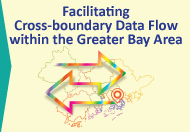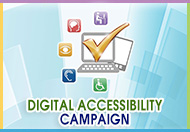3. Why Websites Need to be Accessible
There are many reasons why websites need to be accessible.
3.1 Social Responsibility
Everyone has a responsibility to treat persons with disabilities the same as we treat persons without disabilities. This is especially important for websites, as they often enable these people to live a more independent life and maximise their potentials in a knowledge society. In some cases a website is the only way for persons with disabilities to access up-to-date information.
3.2 Legal Responsibility
The Disability Discrimination Ordinance (Cap 487) has created a legal duty for organisations to ensure their services are available to everyone regardless of disability. This principle is applicable to information and services provided through websites.
3.3 Access to Hidden Markets
Effective web accessibility allows:
- Government websites to reach more citizens.
- Corporate websites to reach and retain more online customers.
3.4 Rank More Prominently in Search Result
Adopting web accessibility design is in effect making websites more accessible not only to persons with disabilities but also the search engines. Many of the features making a website accessible, such as enforcing proper coding of the webpages and presenting the contents in a clear and structured manner, are inherent characteristics of a search engine friendly website. Therefore, the more accessible your website is, the more effective your search performance is, and the more potential customers you can reach.
3.5 Lower Costs
Attention to web accessibility guidelines on all website projects saves time and money in the long term, especially when new releases of systems are rolled out.
Building accessible websites requires good coding techniques that in turn lead to websites that are easier to maintain and are compatible with different web browsers and devices such as smart phones and tablets.

















































